We need to realize that this is not episodic, this is systemic. This is here to stay.
Who is welcome here?
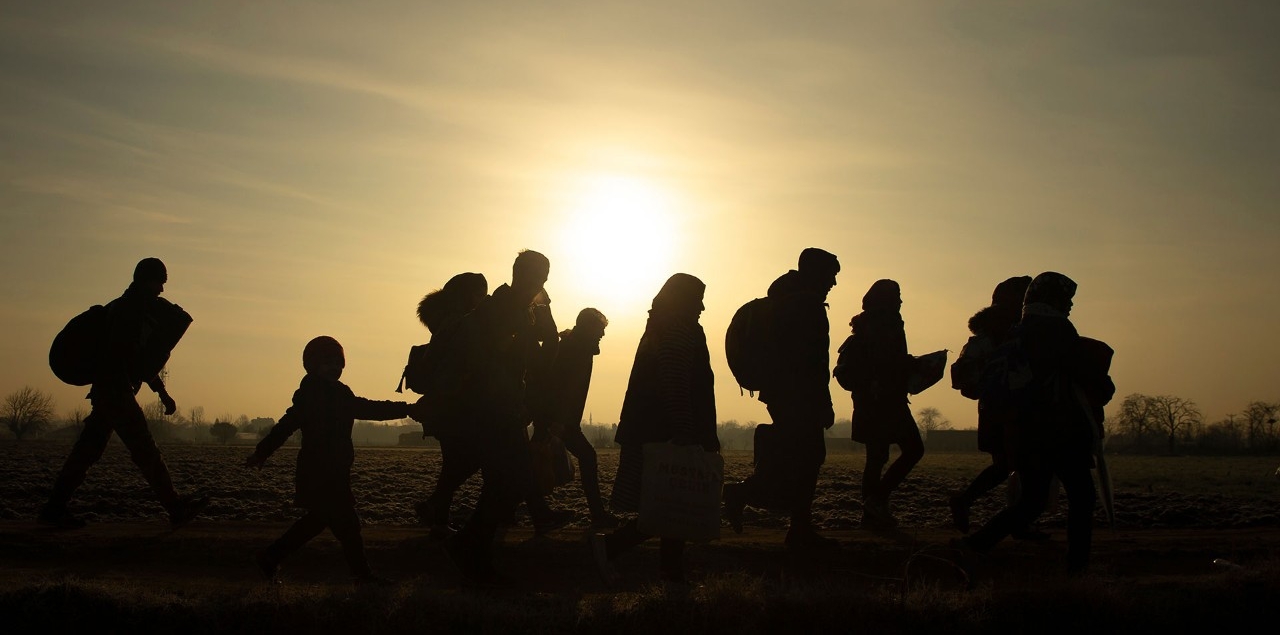
Roxham Road runs eight kilometres from Champlain, New York, to the municipality of Saint-Bernard-de- Lacolle, Quebec.
Some 5,000 people entered Canada through the rural, unofficial border last December. Eight times that many sought asylum at such crossings in 2022 alone.
Many experts, Concordia faculty and alumni among them, have claimed that this influx — triggered by a cascading sequence of global events, from climate change to political violence — was exacerbated by a loophole in the Safe Third Country Agreement (STCA) with the United States. Signed in 2004, the treaty allowed for migrants who entered Canada between designated ports of entry to have their asylum claims heard and processed.
Since a renegotiated STCA came into effect on March 25, however — a deal that gives Canada and the U.S. the authority to turn people away at unofficial crossing points on their shared border — refugee advocates have warned that the movement of asylum seekers will be further constrained and their safety endangered.
“We couldn’t just shut down Roxham Road,” said Prime Minister Justin Trudeau at a joint press conference with President Joe Biden. “People would’ve looked for other places to cross. That’s why we chose to modernize the [agreement].”
‘The politicization of immigration’
The conundrum on the border has stoked broad social and political debate as Canada and Quebec decide how to proceed on immigration more broadly.
One of the country’s leading thinkers on the issue is Mireille Paquet, associate professor in the Department of Political Science and Concordia Research Chair on the New Politics of Immigration.
During a 2019 interview to discuss her book, La fédéralisation de l’immigration au Canada (Les Presses de l’Université de Montréal), Paquet remarked that after the Second World War, Canada started to enact policies that sorted immigrants as “desirable” or “less desirable” and designed services, often clumsily, to promote integration.
A rupture in that decades-long paradigm has emerged, however, as more and more stakeholders begin to question the state’s responsibility vis-à-vis immigrants.
“This has really contributed to the politicization of immigration,” concluded Paquet. The political scientist further expounded on her research last October when she delivered a guest lecture at McGill University’s Institute for the Study of Canada.
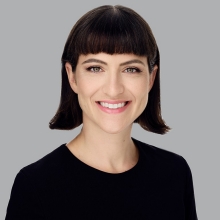 Mireille Paquet | Photo: Sasha Onyschenko
Mireille Paquet | Photo: Sasha Onyschenko
“My argument today is that Quebec has definitely entered a new phase of its immigration politics,” Paquet told the audience. “At its core, the province is part of a settler state that has historically demanded and used immigration to replace the Indigenous population with ‘chosen’ citizens from abroad.” But important changes are under way that now demand thoughtful analysis, she suggested.
“These changes signal the transformation of Quebec’s relationship to immigration. We need to invest time and energy to understand them because they will affect the experiences of newcomers. These changes, in the long term, will change Quebec’s identity and the politics of thinking about immigration in the province.”
“Unplanned” arrivals — though relatively few compared to other parts of the world — in the form of irregular crossings at Roxham Road signal a crucial shift for Quebec, explained Paquet.
“All of a sudden, Quebec realizes that it’s not an isolated island in the face of global migration patterns.”
A global phenomenon
Quebec is far from alone in this realization. Data from the United Nations Refugee Agency puts the worldwide total of forcibly displaced people — compelled to seek asylum because of war, famine, political persecution and more — at 103 million.
While a majority settle in neighbouring countries, nearly a third of the displaced end up in other places. Places like Canada. The federal government has plans to admit roughly 50,000 in 2023, the most since 1979.
“We’re seeing the largest displacement of refugees in recent history,” says Abdulla Daoud, BA 13 (poli sci), director of Montreal’s Refugee Centre. “It’s never been this big.”
Given all the evidence now linking dramatic rises in temperatures to more frequent and severe armed conflicts, civil strife and natural disasters, the trend is likely to endure.
Against this backdrop, Concordians have been advancing research, analyzing policies and working with new arrivals to Canada to better understand whether the nation is prepared for what’s ahead. The common consensus is that there’s much work to be done.
“In general, our system works,” says Lawrence Butkowsky, BA 87 (comm studies), a Toronto-based immigration and refugee attorney. “But there are challenges with the way we operate as well.”
When Russia invaded Ukraine in February 2022, resulting in the biggest refugee crisis in Europe since the Second World War, the response from Canada was swift. The country lent support by creating resettlement programs and initiatives — like the Canada-Ukraine Authorization for Emergency Travel (CUAET) — that were less prone to the kind of bureaucratic snafus that typically hamper asylum seekers.
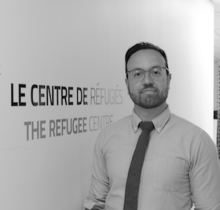 Abdulla Daoud, BA 13
Abdulla Daoud, BA 13
Band-Aid solutions and short-term fixes won’t cut it — we need to be much more forward-looking.
Olena Zamkova, BFA 22, saw this first-hand after she spent several weeks along the Hungary-Ukraine border assisting refugees with transportation, paperwork, accommodations and fundraising.
“When they came here, they immediately received a work permit and all the privileges of Canadian permanent residents,” she says. “It was very fast and efficient.”
Admirable as such responsiveness is, it’s not necessarily representative.
“Canada absolutely did the right thing for Ukraine by setting up priority access channels of bureaucracy, running emergency rescue programs and issuing an uncapped number of visitor visas,” acknowledges Deniz Duruiz, an assistant professor in the Department of Sociology and Anthropology whose research focuses on migrants and refugees.
“However, this showed refugees of all races — who have not benefited from the same practices — just what Canada is capable of when the will is there,” she adds. “It’s such a shame that the Canadian state only seems to mobilize in this way for white people from a land that was included in Europe only after its invasion by Russia.”
Bias is reflected not just in government policy, but in public perception, too. A study published by Ipsos to mark World Refugee Day 2022 indicated that while 64 per cent of Canadians support accepting more refugees from Ukraine, that number drops to 37 per cent for Afghanistan, 36 per cent for Venezuela and 35 per cent for Syria.
Experts like Paquet have noted that there used to be much more political agreement around immigration. In this age of polarization, that’s no longer the case.
“Immigration was featured heavily in the last two provincial elections [in Quebec],” Paquet remarked at McGill. “That’s pretty new. It’s also worth noting that position-taking by Quebec parties on immigration has become more differentiated.”
‘Bureaucratic and administrative lag’
All of this must be better understood to ensure that immigrants and refugees are treated fairly and equitably.
The procedural nuts and bolts of our system have to be improved to meet the current moment, too. Canada’s speedy response to the Ukraine crisis, many have noted, was exceptional.
“We have an infrastructure in place, but it’s very slow in terms of dealing with people who are applying for refugee status,” says Butkowsky.
This is echoed by Daoud, who has seen asylum seekers and refugee claimants wait for agonizingly long stretches of time. “There’s a significant bureaucratic and administrative lag in the government’s paperwork processing for these individuals,” he says.
The result, Daoud adds, is that Canada risks losing its credibility on an issue that it frequently likes to stake its international reputation on.
“Integration is always a two-way street. There’s the refugee or the newcomer willing to integrate into society, and then there’s the society that has to be welcoming and accommodating and ensure that the pathway exists for them to integrate. The longer we delay, the harder the integration process becomes.”
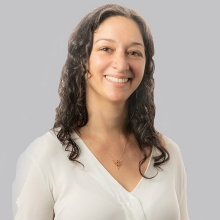 Deniz Duruiz | Photo: David Ward
Deniz Duruiz | Photo: David Ward
Oftentimes, people who do not have the means or the legal support to craft their story into one of a ‘deserving refugee’ are also the ones who need that protection the most.
This is a major reason why the Refugee Centre has appeared before Parliament, Daoud points out, drawing attention to inefficiencies and pushing for improvements that Immigration, Refugees and Citizenship Canada can — and should — make.
For a long time, resettlement was thought to be the sole responsibility of the federal government. That, however, has shifted.
“For a long time some provinces were saying, ‘Let the federal government do its job,’” says Chedly Belkhodja, professor at Concordia’s School of Community and Public Affairs and director of the university’s Centre for the Study of Politics and Immigration (CSPI). “Slowly, for better or for worse, they have become more and more involved in immigration.”
Part of the reason for that was economically and demographically driven, as employment sectors outside of Canada’s largest metropolitan areas faced labour shortages. The Atlantic provinces, for example, have actively campaigned for and recruited more immigrants and refugees.
This has presented certain challenges. Belkhodja points to research he has done in Eastern Canada that showed what can happen when provincial policies and initiatives — such as the Provincial Nominee Program — by various stakeholders are put into place.
In his research on the establishment and integration of Syrian refugees in New Brunswick in 2015-16, Belkhodja indicated that the settlement sector was overwhelmed. “The model just wasn’t sustainable,” he says. “It meant finding new forms of collaboration and going beyond the traditional settlement model.”
In the wake of his research, Belkhodja also discovered on the periphery the emergence of a new figure — the active citizen who wants to offer their own support to refugees.
Along many borders, including Roxham Road, individuals and groups are practicing solidarity and hospitality. “Beyond the private sponsorship model, we have to recognize the implication of citizens taking simple actions with newcomers, such as going for a walk or eating together.”
Belkhodja came to know many volunteers who, as impassioned advocates of justice for refugees, were eager to challenge the status quo.
“These people were asking questions like, ‘Why is the system not working the way it should work? Why are we not doing more?’” he recalls.
Organizations like Montreal’s Refugee Centre are also providing a range of services, from academic and legal aid to mental-health and employment support.
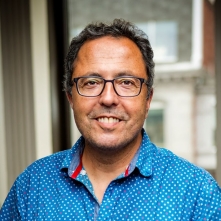 Chedly Belkhodja
Chedly Belkhodja
We have to recognize the implication of citizens in taking simple actions with newcomers, such as going for a walk or eating together.
Assistance from government agencies, non-profits and private citizens, however, doesn’t make adjusting to a new country and culture any less difficult. The needs of refugees aren’t magically satisfied when they arrive in Canada. In fact, resettlement often amplifies those needs.
Daoud observes that society has a critical responsibility to provide the requisite resources and supports to help ensure that resettlement is successful in the long term. This is especially vital as the number of refugees continues to soar worldwide.
“If we’re accepting the numbers that we want to accept, we have to be able to anticipate and meet the needs of these individuals,” says Daoud. “Band-Aid solutions and short-term fixes won’t cut it — we need to be much more forward-looking.”
A new phase of immigration politics
That’s partly what led the CSPI to launch a speaker series in 2020 that invited experts to deliberate on immigration issues from multiple viewpoints.
“It’s crucial that we stimulate new research to develop a better understanding of this subject,” said Paquet when the initiative was announced.
In turn, those new data-driven findings need to be communicated to policymakers at all levels of government. Whether officials heed advice from people like Paquet — who has been vocal about the pernicious use of misinformation and xenophobic scare tactics to foment anti-immigrant sentiment — is another matter.
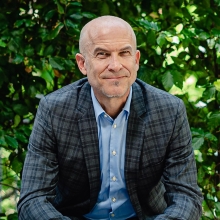 Lawrence Butkowsky, BA 87 | Photo: Marteen Sevier
Lawrence Butkowsky, BA 87 | Photo: Marteen Sevier
We have an infrastructure in place, but it’s very slow in terms of dealing with people who are applying for refugee status.
“Officials tend to dwell on questions of logistics, infrastructure and financing,” says Daoud. “But a good refugee policy needs to look at the intangibles as well.”
Butkowsky, for example, says that he “can’t just be a lawyer” when he sits down with his clients. “I need to be understanding, empathetic and compassionate. If you want to be good at this kind of work, that has to be part of your persona.”
Duruiz would like Canadians to be more outspoken about how those looking to resettle in Canada are treated on their way here.
“Canada is as responsible as the U.S. for what happens to people trying to cross the U.S.-Mexico border,” she says. Duruiz also describes many of our distinctions between refugees and migrants as outdated.
“Refugees are often labelled as forced, while migrants are labelled as voluntary. But that’s not always the case. A sustainable system of migration would acknowledge that global political, economic and social inequalities make life unliveable in some places and relatively easier in others,” she says.
“Oftentimes, people who do not have the means or the legal support to craft their story into one of a ‘deserving refugee’ are also the ones who need that protection the most.”
Whether we even consider migrants and refugees at all will largely depend on our ability to overcome fractious, and often histrionic, media commentary and bad-faith political actors. Paquet has cautioned that the politicization of immigration can profoundly hinder constructive policy developments and “is likely to have serious consequences on our capacity to actually think about how we can ‘fix’ the problem or engage in reform.”
This phenomenon is not just confined to Quebec or to Canada, either. There’s scarcely a part of the world not currently impacted by some version of the Roxham Road controversy. “We need to engage seriously, both as citizens and as scholars, with [all of this],” says Paquet.
“We need to realize that this is not episodic, this is systemic. This is here to stay.”
Ultimately, the conclusion of Paquet and many other observers in the space is that Canadian society needs to arrive at a new consensus and bargain.
A bargain, Paquet asserts, “that will include new policy interventions that address new types of vulnerabilities as well as new types of misinformation, new types of politicization and all the rest that can be associated with this [current] phase of immigration politics.”

